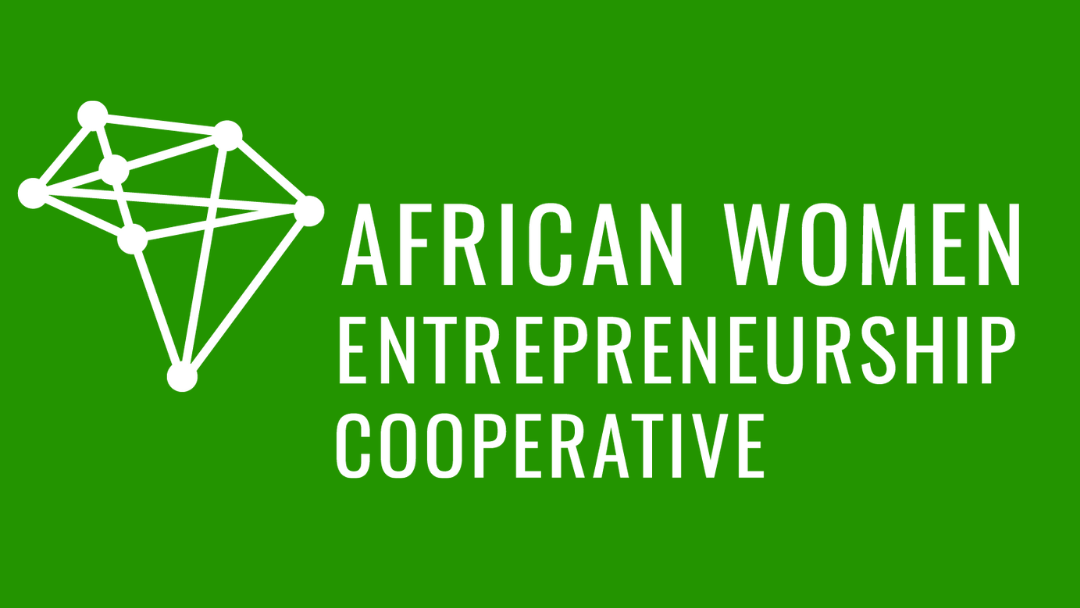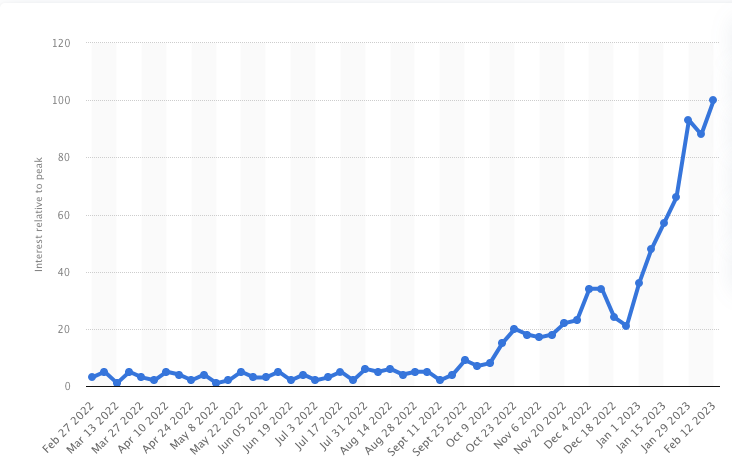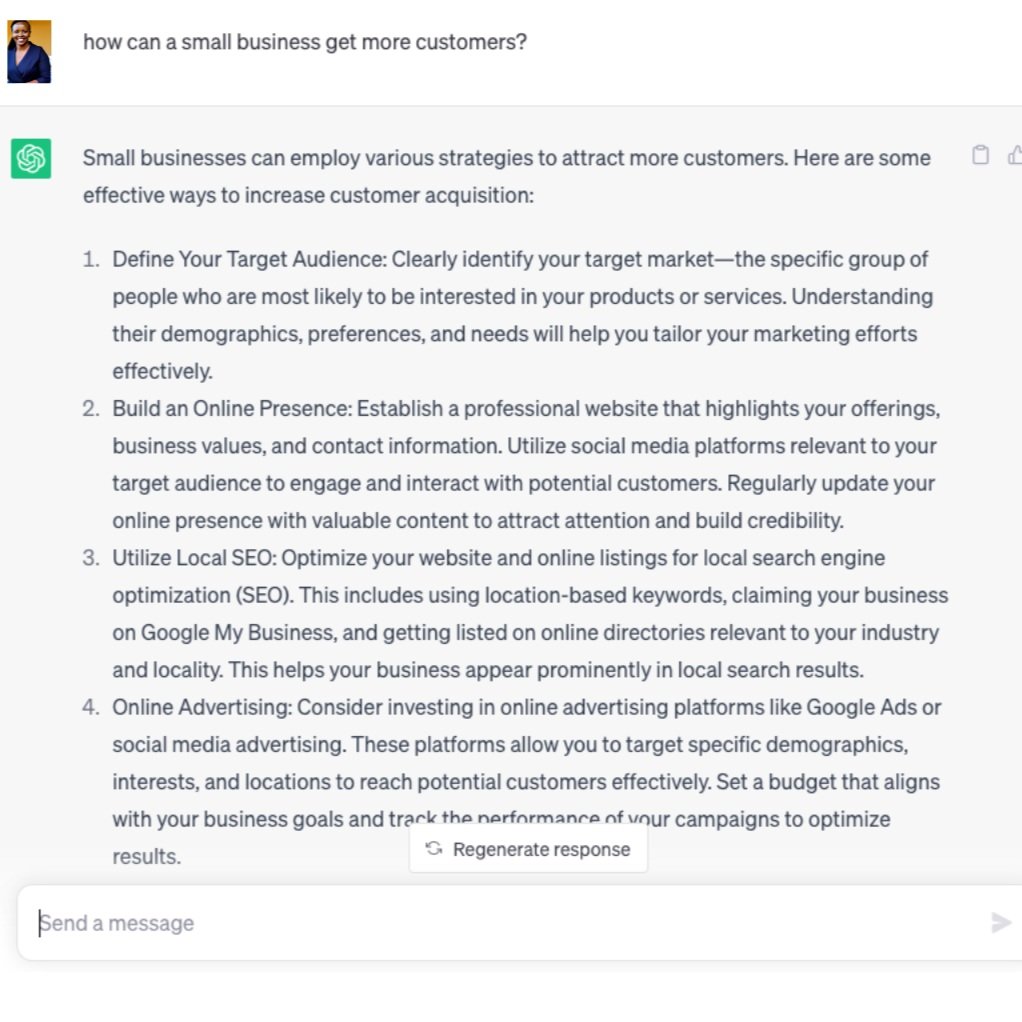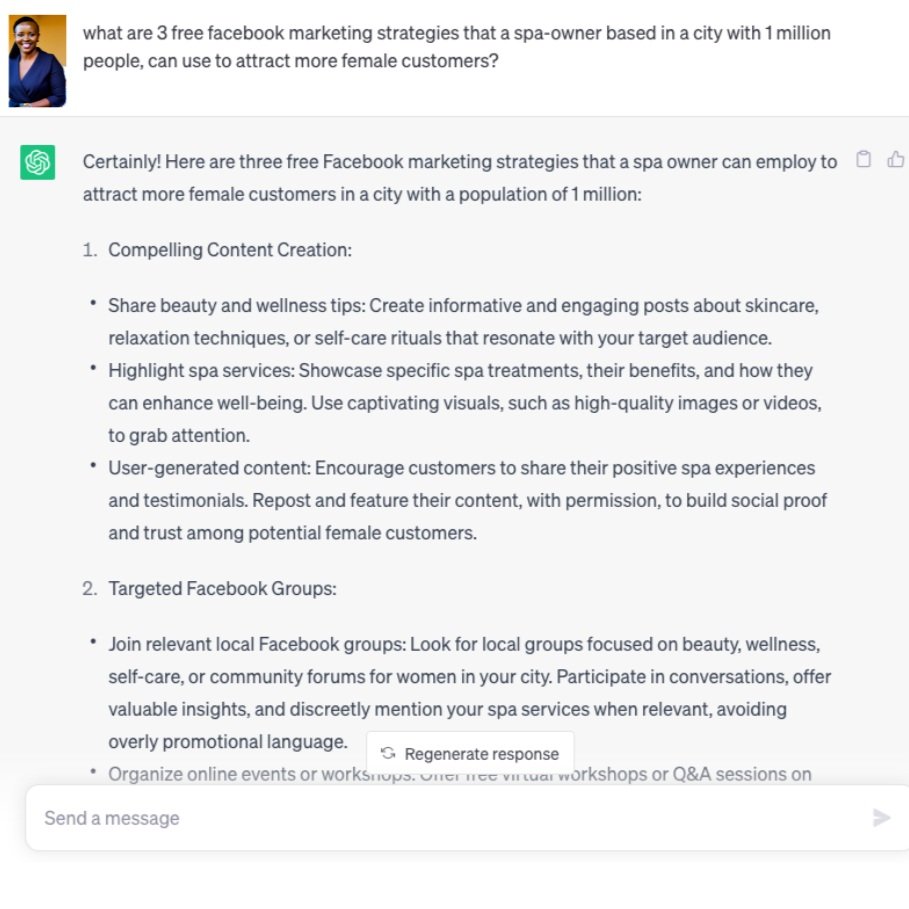How Africa's Betting On AI: A Match Made in Cloud-Based Heaven
Generated by Canva AI
Keza prides herself on providing excellent end-to-end customer experience to every patron who walks through her doors. Every day she is inundated with inquiry emails, social media comments, and even customer service complaints. Customer happiness is paramount to her business’s success, but she is overwhelmed by the flurry of messages.
Enter generative artificial intelligence. Generative AI is a game-changer for small businesses intent on changing the way they operate. By creating various types of content such as text, images, and videos out of user-fed prompts, small business owners are able to brainstorm, answer questions, and hold human-like conversations with a smart (virtual) friend.
According to Statista, the search for the term ‘generative AI’ surged from February 2022 to February 2023. The trend is most likely attributed to the global popularity of the newly-launched ChatGPT, an innovative chatbot AI model developed by US-based research company Open AI. However, AI has been around for decades and has been integrated into many aspects of our lives, with the average consumer unknowingly using it.
Image source: www.statista.com
ChatGPT is an AI program that has amassed an inordinate amount of text from books, articles, and websites to understand and generate text. When it exploded onto the scene in November 2022, it acquired 1 million users in five days. To put this into perspective, it took Netflix 3.5 years to reach 1 million users and Instagram 2.5 years to achieve 1 million downloads. That week, we saw a new digital revolution that would forever change the way we live our lives.
ChatGPT for the African Business Owner: 3 Unique Ways an Entrepreneur Can Use Generative AI
Handle Disgruntled Customer Complaints
Keza receives one or two customer complaints a week. Aware that her spa’s reputation is on the line, she needs to respond delicately and promptly to each grievance. She turns to ask ChatGPT: “Reply to this email in a diplomatic, firm but also friendly tone.” She then proceeds to copy and paste the customer complaint that landed in her inbox.
By specifying the tone she wants to convey and giving the AI the exact email it should respond to, Keza gets a done-for-you solution to her problem. It saves her the hassle and stress of crafting the perfect response herself.
Become a Copywriting and Marketing Pro
Savvy entrepreneurs understand the importance of copywriting as they compete in crowded marketplaces. Incorporating SEO into marketing copy is as much a skill as it is an art when battling to create the biggest impact in the fewest words possible. Used expertly, copywriting can help businesses build a unique brand image, engage with their audience and cultivate fan loyalty. Small business owners often need to write and rewrite product descriptions, social media captions, and even email newsletters.
Reimagine Recruiting
As a business grows, job postings are a necessary but tedious task that no business owner can avoid. Creating a job description that attracts the cream of the crop will generate killer applications and recruit top talent. An entrepreneur’s dream! Standard, generic job ads will yield average submissions which can result in frustration and dissatisfaction for the new hire and employers like Keza.
In addition, a report by Employee Benefit News stated that employee turnover can cost employers 33% of an employee’s salary. To reduce crippling turnover rates, small business owners can leverage AI tools like ChatGPT to generate unique and customized job descriptions that speak to their hiring needs and make the recruitment process as seamless as possible. A business owner can ask ChatGPT: “Write a job description for a massage therapist for a spa in Rwanda”. In a few seconds, they’ll have a full job description with required qualifications and necessary experience.
It can also help boost employee engagement by suggesting creative and innovative ideas to motivate your staff. From team-building activities to employee recognition programs, Keza has endless options at her fingertips.
AI and Africa
AI is not new to the African continent. The AI startup scene has been thriving for decades, with numerous companies raising capital ranging from the low seven-figures to over US $100m. One standout success story is Tunisia’s InstaDeep Ltd which was acquired for a staggering US $682 million.
With over 2,400 AI organizations in Africa, African startups increasingly see the need for AI technology to serve their local consumer markets. Nigerian-based Intron Health developed Africa’s first speech-to-text tool that was capable of understanding over 200 African accents.
Newly-launched Lelapa.ai in South Africa plans to make AI for African businesses and nonprofits. By working on the problems African AI researchers care about, coupled with their $2.5 million in funding, the startup is focused on building technology that prioritizes African needs and values.
Botswana-based startup Seipone.ai seized a gap in the market and created a multi-lingual AI tool that understands African languages like Setswana, Swahili, and even social media expressions and slang. By mending communication barriers, brands can speak to their consumers effectively.
“... we discovered that we could actually create value for brands, for companies big and small, to understand the communication coming from their customer base.”
-Nomsa Makgabenyana, Founder & CEO, Seipone.ai
Although ChatGPT has taken the world by storm, various countries have restricted and limited access to it, touting concerns in data regulation, ethics, and privacy. African countries that have banned it include Chad, South Sudan, Eswatini, the Central African Republic, and Eritrea.
Image source: www.seed4.me
Businesses that operate in territories with restricted access to ChatGPT can seek similar alternatives such as:
For Audio, Video and Images: Midjourney, a text-to-image AI generator that allows you to create high-quality images; Fireflies, a note-taking AI tool that transcribes audio in real-time; Murf, a text-to-speech AI platform that creates engaging audio, and Pictory, an AI that creates videos from text.
For Content Marketing: Copy.ai, a marketing copy generator, and Jasper, which has an in-house plagiarism checker and grammar detection function.
For Data: Tableau, an analytics and data visualization AI platform that assists users with data analysis.
(Please note that some of these tools do require a paid subscription.) Others may find themselves working around their local jurisdictions to access AI tools that serve their needs.
Your Turn!
Keza is new to ChatGPT. She’s curious and slightly nervous about using it. At her computer, she mulls over how to begin. Amidst her customer service woes, she needs to attract and retain more customers. She types: “How can a small business get more customers?” This basic prompt yields a generic, theoretical answer and doesn’t help her much.
If she probes the AI further with more specific queries, Keza will get tangible results that she can implement right away (see image below).
Detailed prompting on each of the three points can help her develop a marketing action plan that will ultimately give her solutions to her problem of obtaining more customers. The gold is in the prompt: the more specific your prompts are, the more useful the response will be.
The Future of Your Business with Generative AI
By democratizing access to services that previously only larger competitors were able to employ, it’s no doubt that generative AI is leveling the playing field. Fatima Tambajang, the Africa head of developer relations, startups, and venture capital at Nvidia muses how
“AI will augment many jobs, create even more opportunities, improve productivity, and enhance our quality of life.”
Now, an entrepreneur on a lean budget can create blog posts, product descriptions on their website, and social media captions when previously they might have had to do it themselves or outsource it to a freelancer.
Small business owners on the continent have increased access to more ideas, resources, and possibilities that might have only been available to big industry players with bottomless spending accounts.
Entrepreneurs can leverage the power of AI in almost every part of their business: to help automate mundane tasks, boost brainstorming sessions, and even supercharge their productivity. If entrepreneurs think of tools like ChatGPT as an assistant or a second brain in their business operations, the possibilities are endless.





